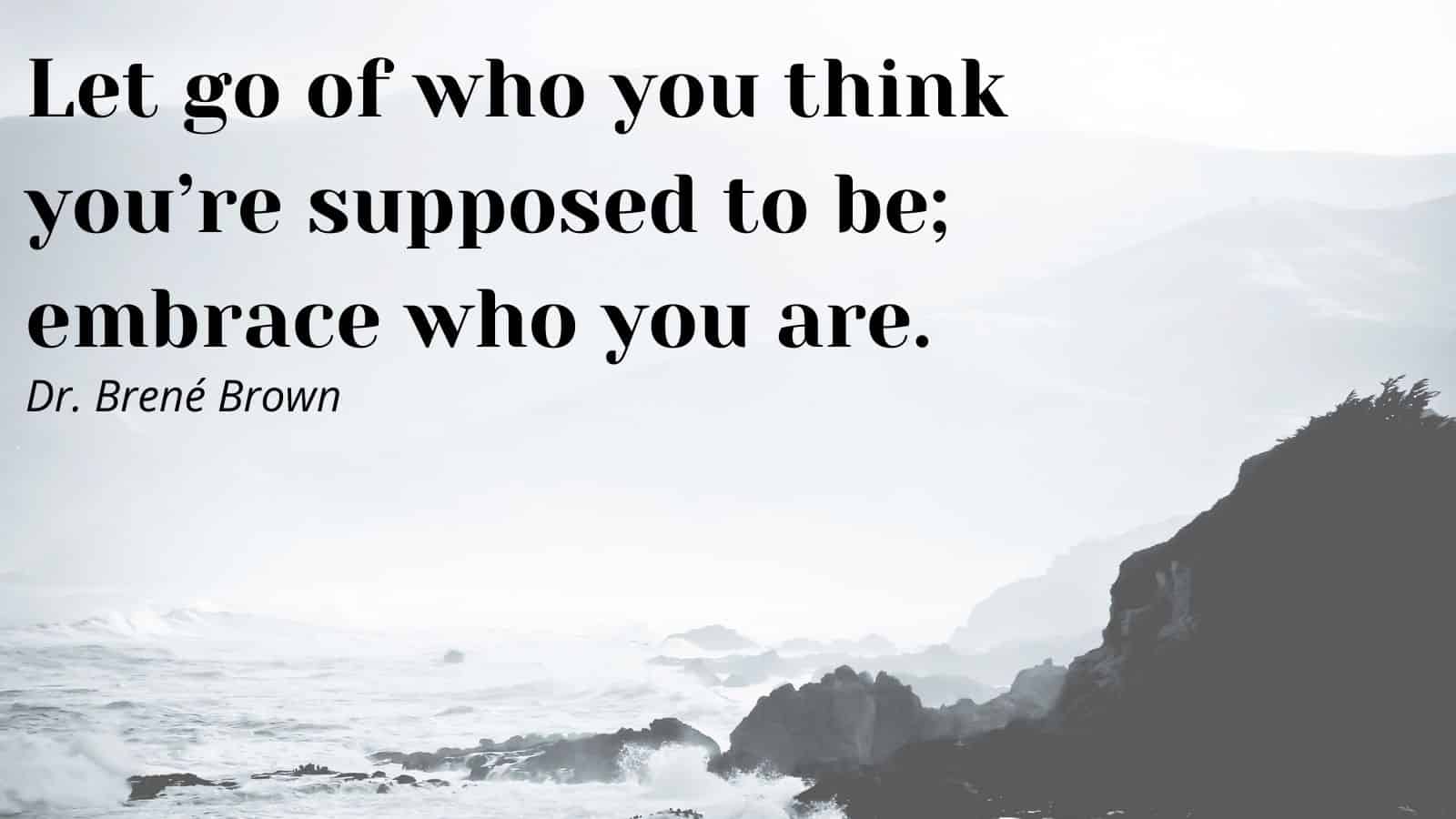Have you ever felt trapped in your own mind? Do you often feel that your emotions control you, not the other way around? It’s a frightening and suffocating situation, but it’s one you don’t have to be defined by.
Being trapped in mental chains can be overwhelming, as you have to free yourself from bindings that you cannot see. But fret not: it can be done! Here are 7 ways to break free from emotional captivity, and how to prevent it at the same time.
1. Release Cognitive Fusion
Cognitive fusion refers to a concept whereby you become “fused” with certain thoughts. This means that you start to feel as if you are your thoughts, preventing you from distancing yourself from negative things that enter your mind. This can mess with your sense of self and lead to decreased positive thinking, worsened mental disorder symptoms, and captivity in your emotions.
 Emotions can come from anywhere, but they shouldn’t define you. When things go wrong, you need to make sure you view your thoughts as separate from you. Avoid saying things like:
Emotions can come from anywhere, but they shouldn’t define you. When things go wrong, you need to make sure you view your thoughts as separate from you. Avoid saying things like:
- I mess everything up!
- I’m a failure!
- I’m such an awful person!
These kinds of statements fuse your sense of self with what you feel, even when what you feel isn’t a real reflection of who you are. It’s a dangerous form of emotional captivity. Instead of using these sentences, try instead:
- Wow, that was super embarrassing; I’d better learn from this!
- I made a mistake, but I’m capable of fixing it!
- I’m a good person, so I will apologize for what I did!
2. Notice Your Patterns
Emotional captivity involves a series of cycles. It means trapping yourselves in the same situations again and again, often not realizing that they’re recurring. If you tend to always find yourself in specific predicaments even though everything else around you has changed, it’s time to look inward and see what your issues are. Pay extra attention if you often say:
- Why do I never get the chance to…
- This always happens!
- Everyone always treats me like this.
- No one ever lets me…
- I just keep getting hurt all the time!
If your complaints today are the same ones you’ve had for years, pause. Look at yourself carefully. Why are these problems continually happening to you, even when the people in your life are different and you’re physically in a different place?
It hurts to acknowledge that you may be a part of your own problems. But even when your own role is one where you aren’t entirely responsible for your predicament, remember – these things are cycles. If you find yourself in a cycle, it’s time to think about how to get out.
3. Be Kind To Yourself
Self-compassion is something often overlooked. People talk about self-care but neglect to realize that being kind to yourself is about more than just that.
When you are stuck in emotional captivity, you may find that you simply cannot be kind to yourself, no matter what you do. You talk down to yourself, you don’t cut yourself any slack, your expectations are high, and you forget that you’re a human being who makes mistakes.
Being kind to yourself is one of the most important parts of breaking away from the mental chains that hold you back, and science supports it. Here’s how self-compassion can help you free yourself from your emotional captivity:
· Increased Happiness
When you’re kind to yourself, you are more likely to experience a positive mood, better happy characteristics, and even improved optimism. This includes improving your personal initiative, bravery in curiosity, and even your wisdom!
· Stronger Resilience
Emotional captivity gets worse when you face adversity, which can further trap you in its clutches. Being compassionate to yourself can help you face your hurdles head-on, according to research, often resulting in faster emotional recovery from difficult events.
· Better Body Image
For many, body image issues play a huge role in emotional captivity. Self-compassion can help reduce feelings of body shame and aid in the development of more positive views of your body. This may include appreciating your body more, being less obsessed with appearance, and being less concerned with weight.
· Reduced Psychological Distress
Anxiety, depression, and even stress can add to the strain of emotional captivity. But studies show that being kind to yourself can reduce the severity of symptoms from these mental health issues.
· Boosted Motivation
Breaking free from emotional captivity requires a desire to change and motivation to improve, and being kind to yourself can help improve that! Research has found that the positive thinking that comes from self-compassion can help people feel more motivated after experiencing failure.
· Better Self-Worth
There are many factors that go into healthy self-esteem, but one of those factors is self-compassion. Studies have found that being kind to yourself can help you stay positive regarding yourself, even when directly faced with evidence of perceived imperfection or inadequacy.
While high self-esteem often depends on external circumstances and social comparisons, self-compassion comes from within. A 2011 study published in the Journal of Personality Psychology Compass reports that self-compassion allows you to continue feeling good despite instances of failure, perceived inadequacy, and imperfection.
 4. Limit Negative Thoughts
4. Limit Negative Thoughts
Have you heard of the concept of positive affirmations? The science behind them suggests that the more you tell yourself good things, the more you internalize and manifest that good in your life. As it turns out, that same concept applies to bad things, too.
It’s easy to get caught in cycles of negative thoughts, and it’s much harder than it seems to snap out of them. But research indicates that these types of cycles can result in negative outcomes for your mental and physical health, suggesting that positive thinking can do the opposite of that.
In other words, emotional captivity can be self-imposed, and it can also be self-fulfilling. Trapping yourself emotionally by repeatedly thinking only the worst thoughts can cause those thoughts to become true. Scary stuff! That’s why you need to limit your negative thoughts in order to free yourself from their trap-filled downward spiral.
5. Detach Yourself In The Right Ways
You shouldn’t detach yourself from your emotions, from your truth, or from your goals in life, but there are some things that you should separate yourself from. Emotional captivity can often be further locked in when you put too much stock into certain unimportant factors. The trouble is that those unimportant factors can seem awfully important at first. Here are some things you should detach yourself from if you want to detach your mental chains:
· What Others Think
People will always have something to say, no matter what you do. Determine whose opinions truly matter to you and start caring only about those. And, even with those special and lucky people, make sure you never consider their opinions more crucial than yours. It’s great to receive and learn from feedback, but you shouldn’t be controlled by others and their thoughts about you!
· Material Things
It’s tough to deny that having nice things is fun, but they don’t mean anything in the long run. This isn’t to say you should commit to a minimalist lifestyle, though! It just means finding a balance between the things you own externally and what truly matters, which is what you have within you.
· Fear
Fear is a part of life, and you can’t eradicate fear from your journey – but you can learn to detach yourself from it. Remember, bravery is not the absence of fear: it is about learning to find strength even when you are afraid. Understanding that fear shouldn’t control you is a powerful way to break free.
· Resentment
Resentment and grudges can build up and tether you to old trauma. You don’t have to outwardly forgive someone to detach yourself from resentment. Simply decide that these people are in the past and that your energy is better spent on future endeavors, not on them. You deserve more than for those who hurt you to hold you back.
6. Let Yourself Cry
Some people equate crying with weakness, but that’s not what it is at all. When you cry earnestly, especially when you sob your heart out and release your emotions, you’re letting go of stress and pain. It’s a positive, self-soothing behavior, and it can lead to mood lifts afterward.
Sometimes, you just need a good cry, and there’s no shame in that. Emotional captivity can be caused by holding in all of your feelings. Simply letting yourself sob as hard as you need to can be enough to help you feel better, and it’s a powerful first step out of your mental chains.
7. Take Responsibility
Holding yourself accountable may be the most important step in freeing yourself from emotional captivity. Realizing that your entrapment is in your hands and that it is your responsibility to break out is tough, but it’s also necessary. Once you realize that the power lies with you, then only can you move forward. Here are some ways to take responsibility for the act of freeing yourself from emotional captivity:
· Stop Blaming Others
Circumstances, people, and life situations can always cause some struggle in your life. But at the end of the day, you decide how you react to these situations. You can make the best of them, learn from them, and find ways to get out, or you can sit there and wallow. If you wallow for months or years, that’s on you!
· Learn From Mistakes
Each mistake comes with lessons to learn. So learn them. Instead of letting errors suck you in further, recognize your part in those mistakes and learn how to prevent or avoid them in the future.
· Be Aware Of Your Emotions
Getting caught in your emotions isn’t fun, but you can learn to stop this pattern. When you feel those negative emotions, learn to recognize them quickly, identify what triggered them, and find your way to resolve or manage those feelings in healthy ways.
· Choose Differently
As we’ve mentioned multiple times, emotional captivity is about cycles. So the next time you find yourself in a cycle, choose to not continue it. Choose to do something different. Choose to learn, grow, and deviate from the well-worn path. Only you can make that choice, so take responsibility for it!
 Final Thoughts On Some Ways To Break Free From Emotional Captivity
Final Thoughts On Some Ways To Break Free From Emotional Captivity
Emotional captivity is a horrible prison, but it’s one you can free yourself from. In your journey towards freedom from these chains, you’ll find your strength and power, and that in itself is a beautiful thing!


















